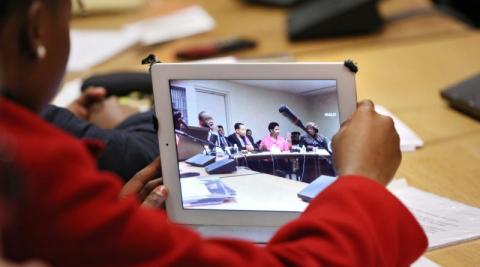COVID-19 has been in existence for over three years, the negative effects are still everywhere. As a leading provider of international educator recruitment service, TopTutorJob keeps a close eye on the impacts on all international schools and educational institutions in China during the pandemic.
In order to better understand the influence on the recruitment work and daily operation of schools, as well as provide key information to all employers in the education industry, we designed this questionnaire and began to send it out to HRs from international schools across China since March 2022. As of now, 38 schools have responded to the questionnaire.
Among 38 schools, most of them are located in Beijing and Shanghai, or new first-tier cities like Suzhou, Hangzhou, Nanjing, Chengdu, Ningbo, etc,. Bilingual schools, either privately run or run by education groups, take the largest proportion of 58%; International department in public schools, and expat schools account for the same proportion of 13.16%; Chain training institutions, chain bilingual kindergartens and international departments in private schools share the rest percentage.
The Impact of COVID-19 on International Education Industry
We collected responses from the perspectives of recruitment needs, teacher turnover rate, teacher salary level, recruitment channel and budget. The findings are shared below:
Recruitment Needs
For most schools, the recruitment needs for foreign teachers and bilingual teachers remained unchanged during the COVID-19 pandemic. 12 schools (30%) were confronted with a higher demand for both foreign and bilingual teachers.
Teacher Turnover Rate
19 schools (50%) faced a higher teacher mobility during the three-year pandemic. Among them, 78.95% considered that more teachers returned to the home country was the key factor for higher mobility. More opportunities in the talent market, and the increasing of expected salary were the other two important factors a majority of schools believed that affected the teacher turnover rate.
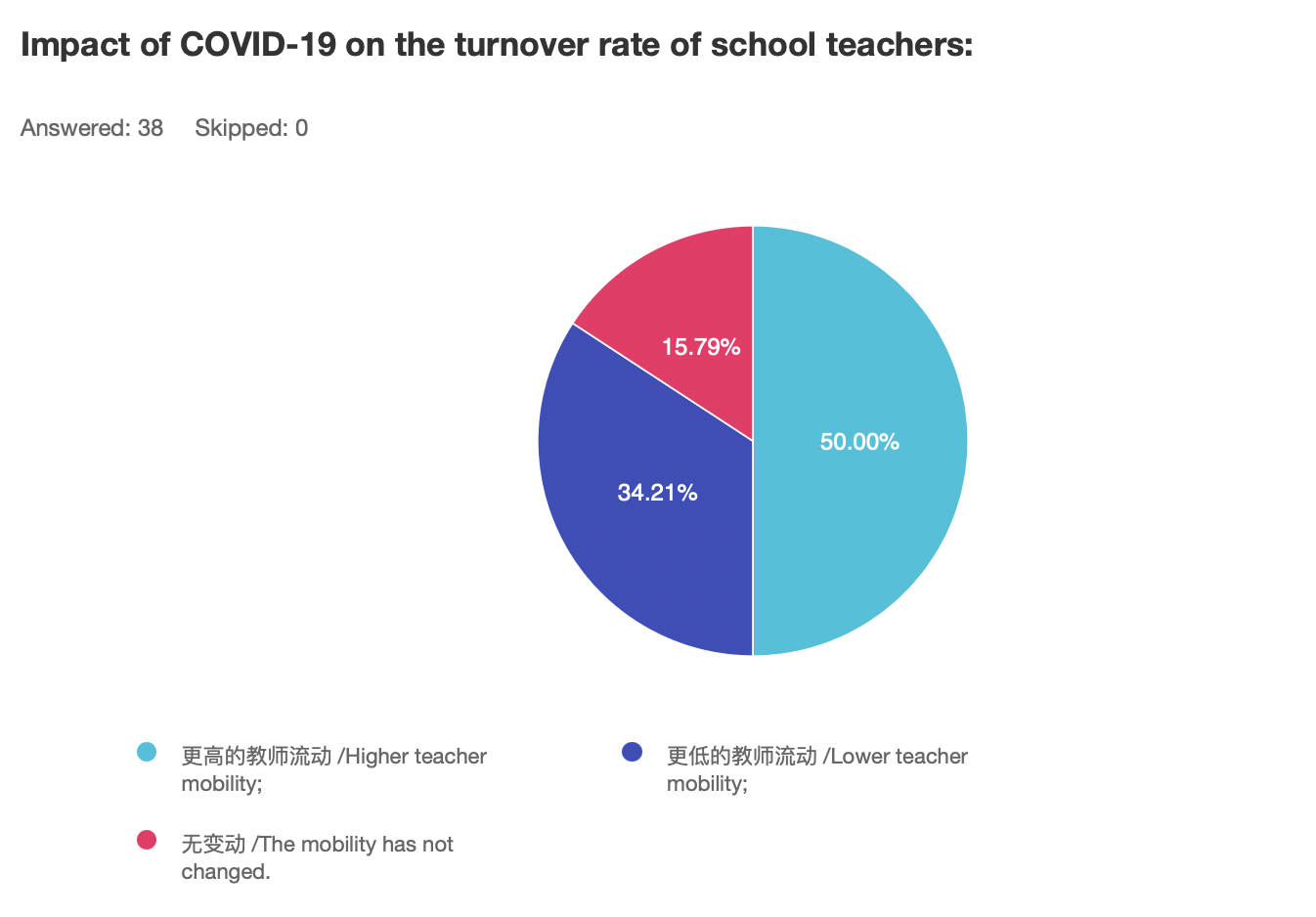
Several schools also specified that the strict entry policy was another reason that caused higher teacher mobility. Under the current policy, most overseas teachers were not able to be on board on time. Although online courses were arranged for them at the beginning, they would not be able to enter the country for a long period and eventually decided to leave their jobs.
Teacher Salary Level
Since the pandemic, 60.53% schools have slightly increased the salaries of foreign teachers, the adjustment range was less than 20%. Near 24% schools haven't changed their teachers' salaries, while over 13% schools have experienced a significant salary adjustment for teachers, the range was over 30%.
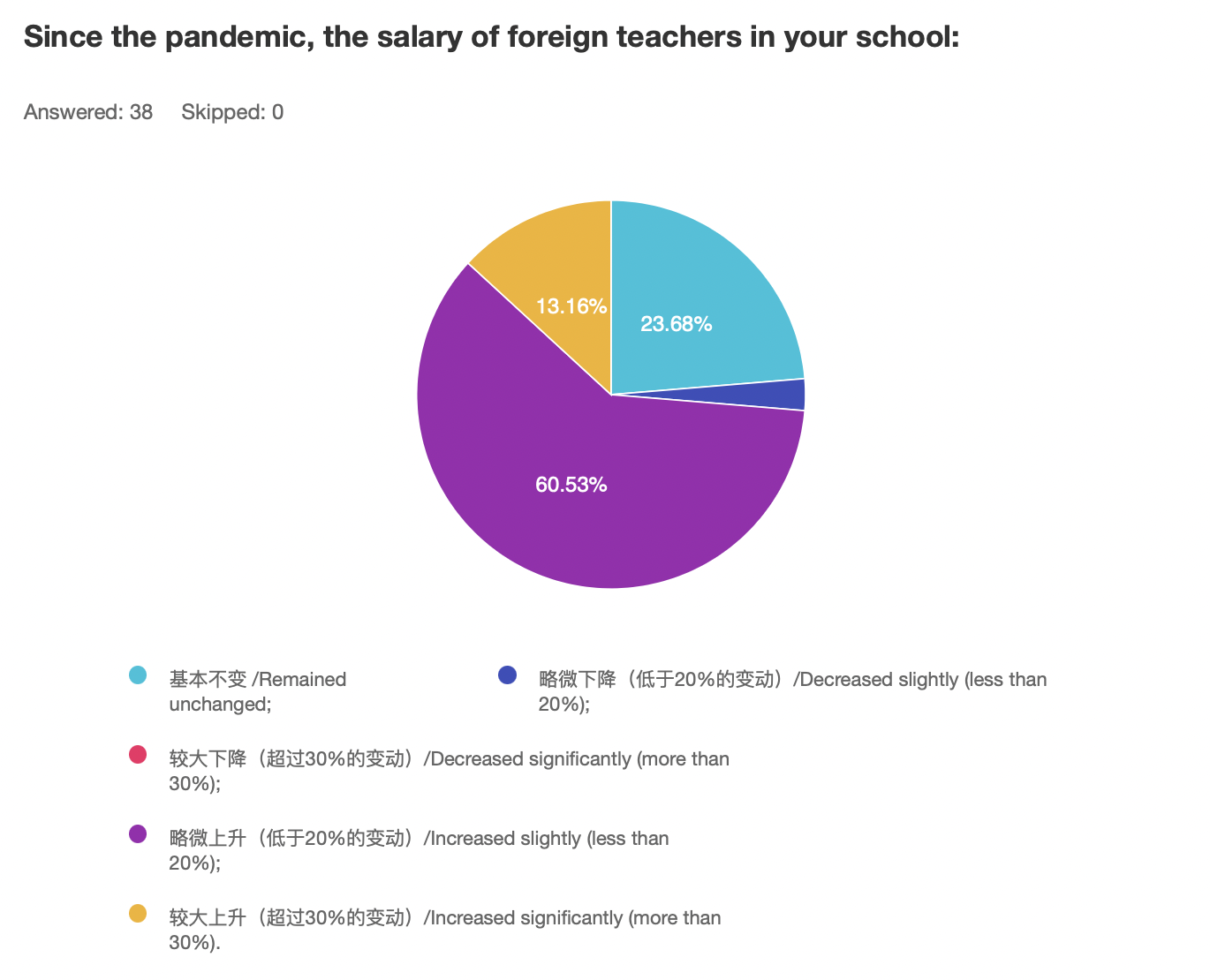
Recruitment Channel and Budget
During this three-year period, 73.68% schools relied more on local agencies to complete the recruitment process. More than 36% schools also depended on local recruiting websites and databases to seek for ideal candidates. Overseas recruiting websites and agencies still played their roles in finding qualified teachers for a fraction of schools.
As the entry policy has become more stringent since the COVID-19, near 50% schools have increased their budgets to recruit qualified domestic candidates. However, near 37% schools haven't adjusted on the recruitment budgets, 13% schools even reduced the budgets.
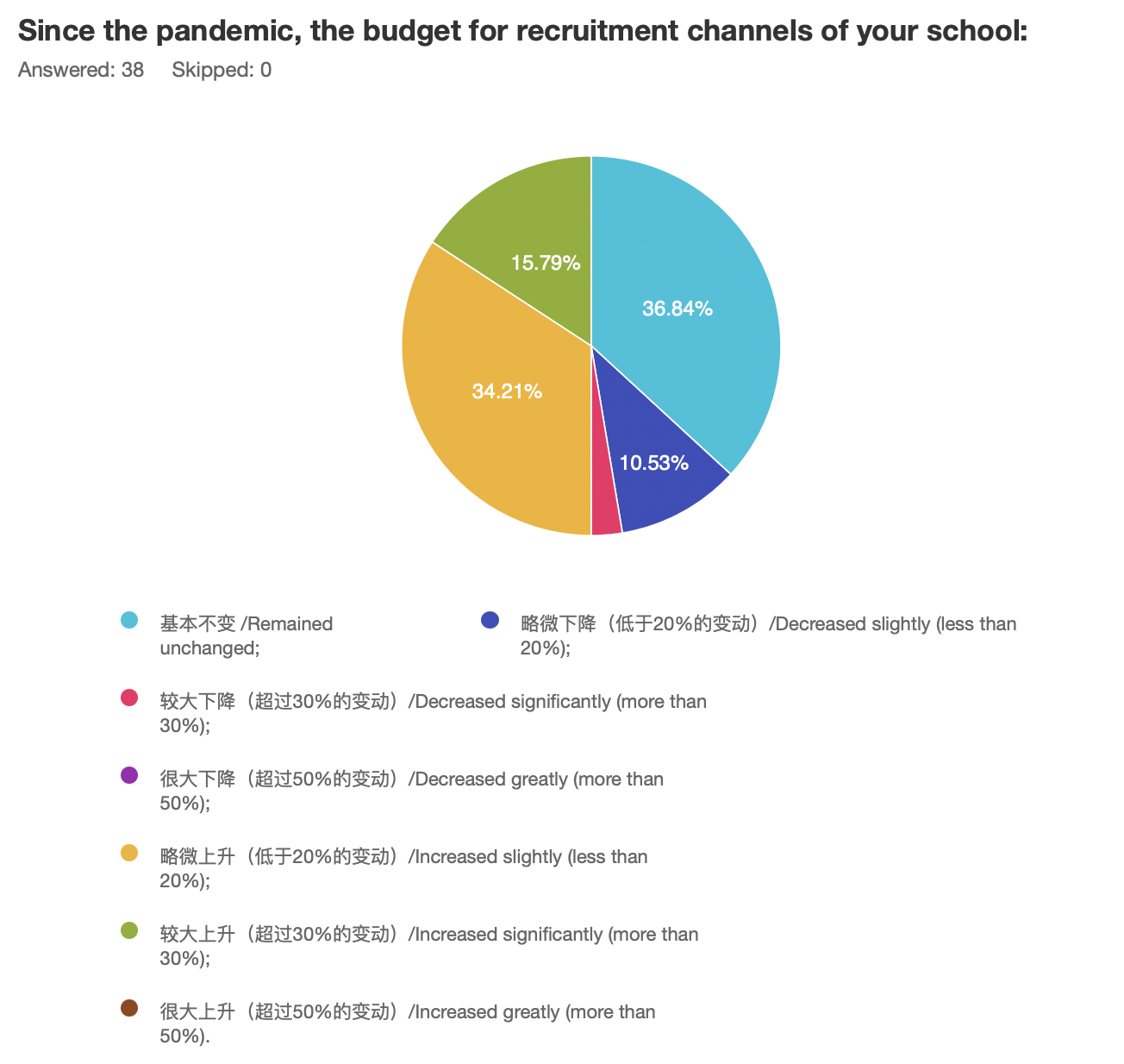
Prediction on Border Reopening
In the questionnaire, we also asked school HRs about their predictions on the time when China eases the border restrictions. 50% schools estimated that the border of China would be opened in the first half of 2023. Near 30% schools predicted that the border would be opened in later 2023 or early 2024.
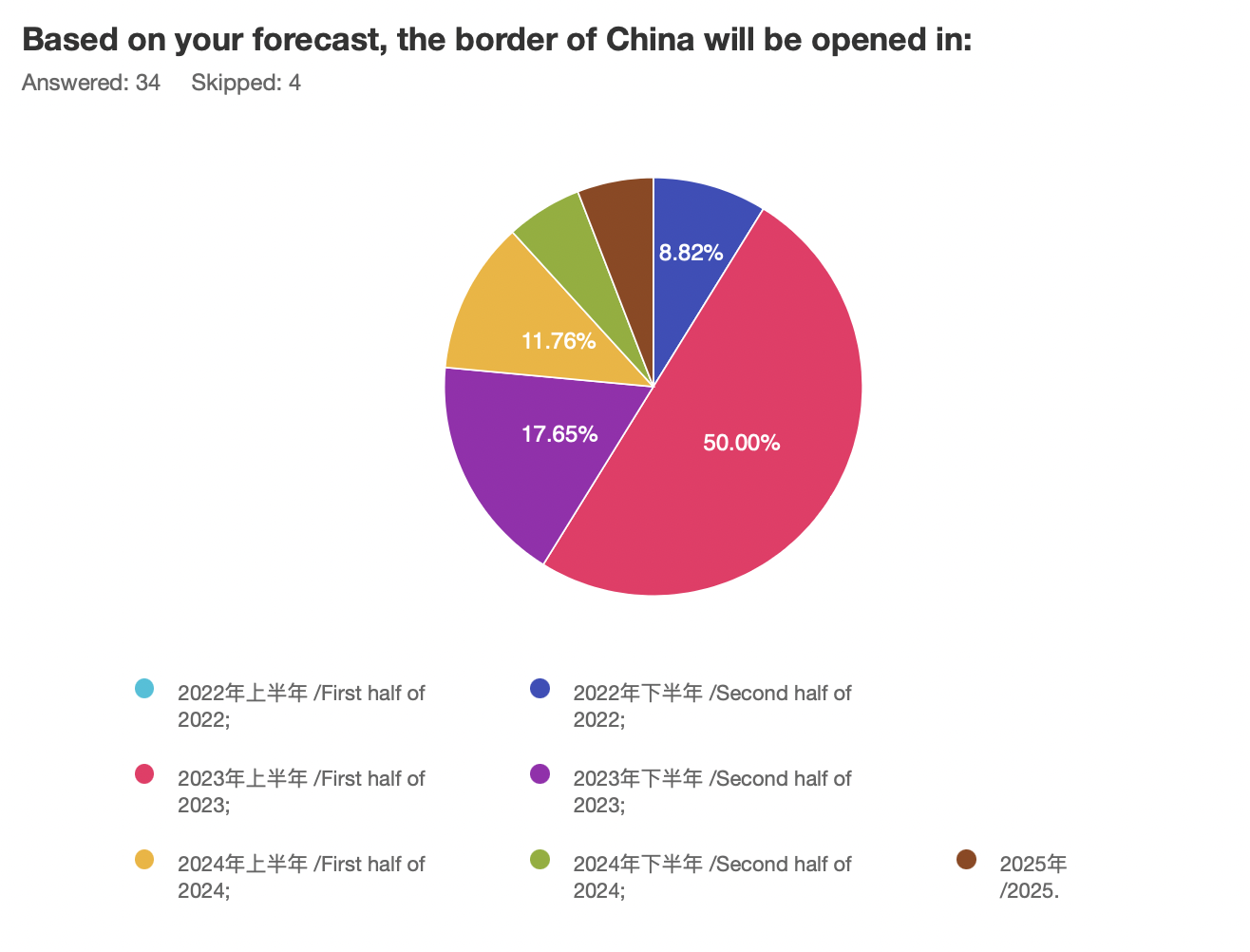
School HRs also listed their priorities on the recruitment work after China reopens the border. Most schools are going to rebuild all talent piplines in and outside China, maintaining their focus on recruiting teachers who are already in China, as well as expanding to look for talents who are currently abroad. A part of schools plan to improve the quality of teachers, retaining present staffs and train them up, as well as to rebuild all talent pipelines to improve the quality of talents.
Conclusion
Under the current circumstance, recruiting highly qualified and suitable teachers has been a great challenge for most international schools in China. The pandemic situation and entry policies are full of uncertainties, foreign teachers who are currently outside China are unable to, or take longer times to enter China. The administrative complexity is likely to cause a higher candidate drop out rate.
As the overseas recruitment channels were almost closed, the number of qualified candidates decreased significantly, and salary expectations generally increased. Some schools choose to appropriately increase the proportion of bilingual teachers, in order to maintain the recruitment standards.
Many schools are focusing on teachers who have already been inside China, and are relying more on individual networking, word of mouth and local recruitment agencies to find ideal domestic candidates. However, with the limited domestic resources, it is difficult for schools to find teachers who are very professional and suitable for the positions.
If you want to see the full survey report, please scan the QR code below to follow us on WeChat:

